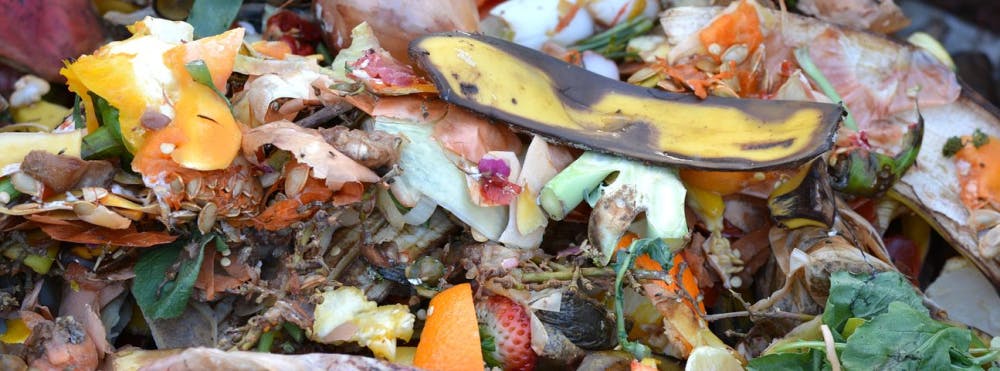By: Elizabeth Weber
Composting is known as nature’s way of recycling and a path of promoting a healthy environment through the appropriate disposal of generated organic wastes; however, a third of landfill material is composed of materials that could be composted. This is why the City of Oxford began a pilot program for residential recycling with the help of GoZero Services. This means the city collects anything from kitchen scraps like fruits and veggies to Biodegradable Products Institute (BPI) products such as plates and cutlery. The City of Oxford accomplishes this through a central 24/7 drop-off location at 945 South Main Street in town. In order to participate in this, keep your compostable items in a container or BPI-certified bag in a cool place, such as a freezer, until you plan to drop off. The city has already started implementing this at local events: you might have even noticed it at the Community Picnic back in late August. I spoke to John Buchholz, the Community Outreach Specialist, about the picnic’s success his plans for future events. The main point Buchholz made was that events like this take forethought. The process of integrating industrial composting into our community is not like a lightswitch; rather, it is a gradual process that takes time. At the Community Picnic, Oxford saw a lot of success. In previous years, the city supplied 4,800 bottles of single use water at the event. According to Buchholz, with the help of water stations, composting, and other new compostable plates and cutlery, an estimated 70-75 percent of the waste generated at the picnic was composted. Overall, the public response was extremely positive, and Buchholz believed that educating the community was more like a domino effect than anything else. The city is planning to implement measures like these at more events in order to provide more education on composting practices and help people see if composting will be a good fit for them residentially. The composting accomplishments at the picnic were aided by campus organizations like EcoReps and Zero Waste Oxford that monitored each of the waste stations at the event. Cassie Conrad, President of Zero Waste Oxford and a member of EcoReps, is a Miami student who has been very involved with promoting sustainability and composting throughout campus. Conrad emphasizes that educational opportunities like this give students and residents alike “the tools and avenues to go about [composting] successfully and make it as simple and doable as possible.”Unfortunately, composting is more difficult in a dorm, but there are ways to make it work: you do not have to do this alone! Students can talk to their residence hall’s assigned EcoRep to figure out ways to form a large group of composters. Talk to your residence hall’s Community Leadership Team and see if you can utilize BPI plates and composting at events hosted in your residence hall. More participation will allow the pilot program to succeed and keep organic materials out of the landfill. So, what exactly is the problem with organic waste in the landfill? Organic materials in landfills undergo anaerobic decomposition, which generates methane. When this is released into the atmosphere, it is 25 times more potent than carbon dioxide; however, when we compost, we gain many benefits such as soil enrichment. This reduces the need for chemical fertilizers and helps to combat water runoff. Instead of methane release into the atmosphere from the landfill, composting produces carbon dioxide. Here, carbon dioxide is part of a natural process and is therefore not considered in the inventories of greenhouse gases according to the United Nations’s Intergovernmental Panel on Climate Change.Overall, we need to take action to educate our community and students about the benefits of composting. If we can get more people to participate in this program and reduce our waste stream, we are taking another important step towards creating a sustainable future.Please contact John Buchholz if you have any questions:

Cover photo courtesy of Pixabay

